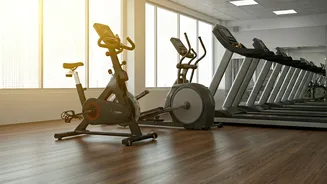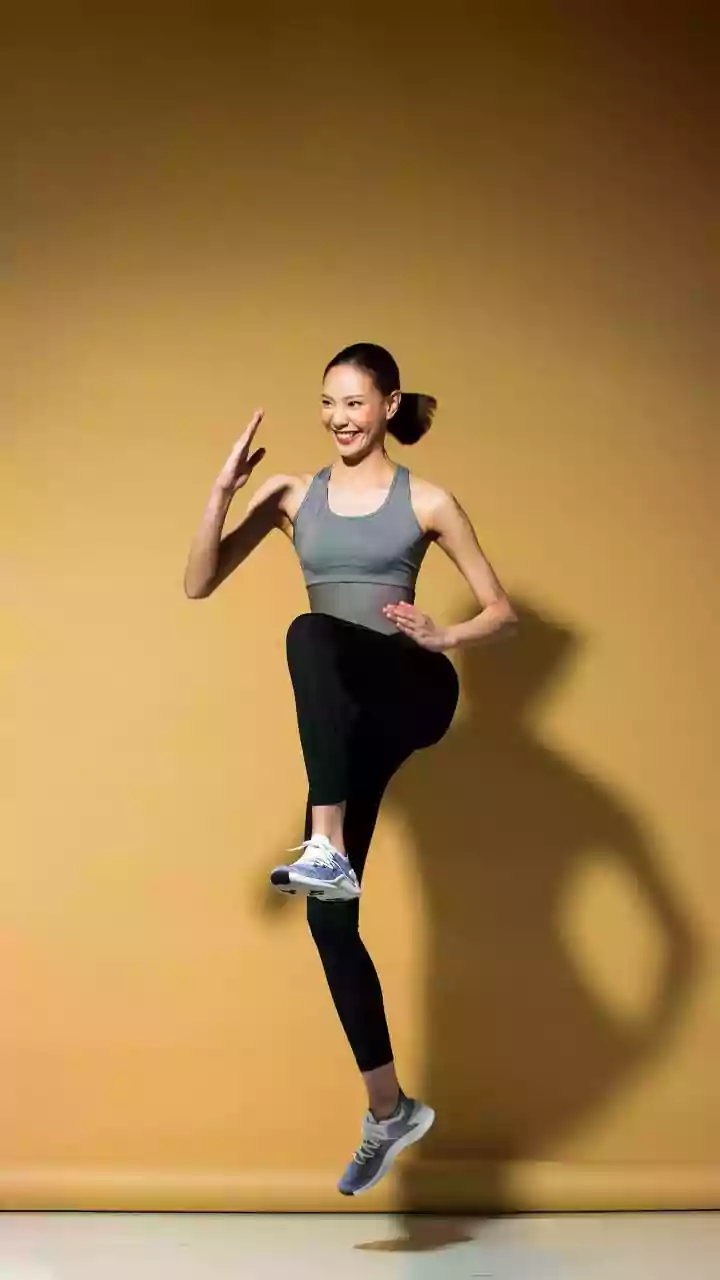Daily Structure for Fitness
Building a consistent daily structure is fundamental to achieving fitness goals, ensuring physical activity becomes a regular habit. One key aspect involves
strategically planning your day to incorporate movement. This doesn't necessarily mean spending hours in a gym. Instead, consider breaking up sedentary periods with short bursts of activity, such as taking a walk during your lunch break or doing quick stretches every hour. Additionally, setting realistic goals and scheduling specific times for exercise in your calendar can greatly enhance your adherence. It is essential to be flexible. Life is unpredictable; there will be days when your schedule is disrupted. Accept these disruptions and adjust your plan, rather than abandoning your fitness routine altogether. For example, if you miss your morning workout, try fitting in a session in the evening or on the weekend. Another crucial element is to prioritize sleep and proper nutrition, which are vital for recovery and overall well-being. A well-rested body performs better, and a balanced diet provides the necessary fuel for your workouts. By integrating movement throughout the day and paying attention to sleep and nutrition, you can build a solid foundation for achieving sustainable fitness results.
Mental Health & Movement
The connection between mental health and physical engagement is undeniably strong. Regular physical activity has been shown to improve mood, reduce stress, and boost self-esteem. Engaging in activities that you enjoy can make it easier to stick to a routine and derive greater benefits. Consider incorporating activities like yoga, which combines physical postures with mindfulness practices. This can greatly improve your mental well-being. Walking or running outdoors, especially in nature, also provides significant mental health benefits, as exposure to natural environments reduces stress hormones and promotes relaxation. Even simple exercises, like dancing to your favorite music or taking a brisk walk, can have a positive impact on your mental state. Beyond these activities, setting achievable fitness goals and celebrating your successes can further enhance your mental health by providing a sense of accomplishment and boosting your self-confidence. Remember, it's not just about how you look physically, but also how you feel mentally. Making physical activity a regular part of your life can contribute significantly to improved mood, reduced anxiety, and a greater overall sense of well-being, which in turn benefits your daily life.
Staying Active Outside Gym
Maintaining an active lifestyle doesn't require a strict regimen of gym visits. There are numerous ways to stay active outside the traditional gym setting. Embracing outdoor activities is a fantastic way to integrate exercise into your life. Try activities like hiking, cycling, or simply taking walks in your neighborhood. These activities offer the added benefit of being in nature, which is good for mental health. Another great option is to incorporate physical activity into daily chores. Tasks like gardening, doing housework, or even walking to the store instead of driving can add up to significant physical activity throughout the day. Consider taking the stairs instead of the elevator, or parking a bit further away from your destination to get some extra steps in. Participating in recreational sports with friends or family, such as playing basketball, cricket, or badminton, is another fun way to stay active. Doing so allows you to combine socializing with exercise. The key is to find activities you enjoy, making exercise a pleasure rather than a chore. By exploring these alternatives, you can maintain your fitness levels, improve your health, and find ways to integrate physical activity into your life without the constraints of a gym.
Pilates for Core Strength
Pilates exercises are exceptionally effective for developing core strength and improving overall resilience. The core muscles—the deep muscles of your abdomen and back—are essential for stability, balance, and posture. Pilates focuses on strengthening these muscles, leading to improved functional fitness. By regularly practicing Pilates, you can enhance your body's ability to resist injury and maintain proper form in other activities. Pilates exercises also improve posture by strengthening the muscles that support the spine. This can alleviate back pain and improve alignment. The controlled movements and focus on breathing in Pilates contribute to enhanced body awareness and coordination. This makes everyday movements more efficient and less likely to cause strain. Beyond physical benefits, Pilates promotes mental focus and relaxation. The emphasis on controlled movements and breathwork helps reduce stress and promotes a sense of well-being. Whether you are new to fitness or an experienced athlete, incorporating Pilates into your routine can significantly improve your core strength, posture, and overall resilience.
Cutting Negative Habits
Identifying and eliminating habits that hinder your fitness journey is crucial for achieving sustainable results. These habits can include various lifestyle choices, such as a sedentary lifestyle, unhealthy eating patterns, or inadequate sleep. Begin by honestly evaluating your daily routines and identifying the behaviours that work against your fitness goals. If you find yourself spending excessive time sitting, make an effort to incorporate more movement into your day. For example, use a standing desk, take frequent breaks to walk around, or set reminders to stretch regularly. Unhealthy eating habits, like consuming excessive processed foods or sugary drinks, can sabotage your efforts. Replace these choices with more nutritious options. Poor sleep can undermine your ability to recover from exercise and perform at your best. Aim for 7-9 hours of quality sleep each night. Making small, gradual changes to break these habits is often more effective than attempting to overhaul everything at once. For example, start by swapping one sugary drink for water each day. Celebrate your successes to stay motivated. Replacing negative habits with healthier alternatives is an ongoing process that will significantly contribute to your long-term fitness and overall well-being.




















